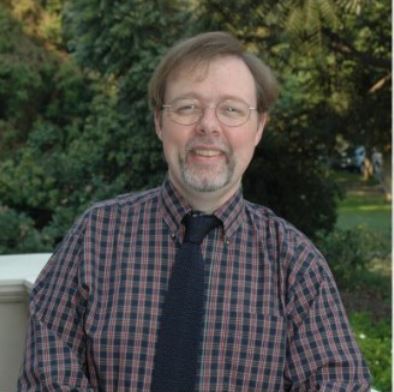
What did you study at Yale, and what is your current profession/job?
I am now, as I have been for the past 32 years, the curator of Western American History at the Huntington Library, Art Collections and Botanical Gardens; some years ago, the position was endowed and so the formal title is “H. Russell Smith Foundation Curator of Western American History.” I have been extraordinarily fortunate in holding this position, since I was a graduate student in the Yale History Department studying the history of the North American West with Professor Howard R. Lamar. Although I left New Haven to take this job in the summer of 1985 when I was still ABD, I did eventually complete the doctoral dissertation and received my Ph.D. in 2007.
What do you like most about your current role? What do you find most challenging and/ or rewarding?
In working closely both with readers in residence at the Huntington and with offsite users located around the world, I have the opportunity to assist the development of scores of research projects each year and thus, in doing so, to help advance the course of scholarly inquiry in many different fields within the broad subject area of Western American history. With each question I answer, I expand my knowledge of the Huntington’s amazingly diverse collections of original source materials as well as my understanding of the individuals and events that have shaped the course of the history of the trans-Mississippi West. At the same time, needing to respond to inquiries in a timely manner, I have to make sure that I do not allow myself to become excessively enamored with any particular topic, no matter how fascinating it might be. That can prove very challenging.
How did your time at Yale shape your career trajectory?
During my years in the Yale History Department, I had the opportunity to broaden and deepen my knowledge of American history in general and of the history of the trans-Mississippi West in particular, as well as to hone the skills of a professional historian in research and writing. Working with the spectacular collections of Yale’s libraries, for example, allowed me to immerse myself in the sources for any research project I undertook. Similarly, being surrounded by so many exceptional colleagues, from my fellow graduate students to the members of my dissertation committee, always encouraged me to keep stretching my abilities as far as possible. Above all, I realized that the skills I had acquired could be put to use in settings other than the traditional academic classroom.
What are the main skills that you acquired as a PhD student which help make you successful in your current career?
During my New Haven years, I significantly sharpened my skills in devising research projects, in locating source materials, in assembling and assessing evidence, in marshalling my own arguments and in evaluating the scope, content and validity of arguments advanced by other writers. It furnished me, in sum, with essential training in every aspect of thinking critically about information. It provided me with a set of skills that I use every day in describing and interpreting documentary materials that help researchers explain the past to the present and the future. These are the skills that are essential for me to play my part in fulfilling the Huntington’s mission as a collections-based institution for research and education.
Did you acquire any professional experience related to your line of work while in graduate school?
While a teaching assistant for courses in the history of American politics and public policy as well as the history of the trans-Mississippi West, not only did I become familiar with many fundamental works in those fields but I acquired invaluable experience with every form of interpersonal communication that teaching demands, from the one-on-one conversation with individual students to the traditional lecture class. Concurrent experience as a research assistant, meanwhile, reinforced my expertise in framing research questions, identifying the sources essential to answering each question and compressing the relevant information into the most concise form possible.
What advice would you offer PhDs who are interested in your line of work?
Those individuals interested in making such a transition should remember to define their skills and experience in relatively broad terms, emphasizing for instance that they possess the ability to think critically and express themselves with clarity and brevity. They should find ways to demonstrate their enduring intellectual curiosity and their ability to work effectively without continuous supervision. And above all, they should avoid the trap of becoming so focused upon any single subject or goal that it would impede their capacity for professional flexibility.
